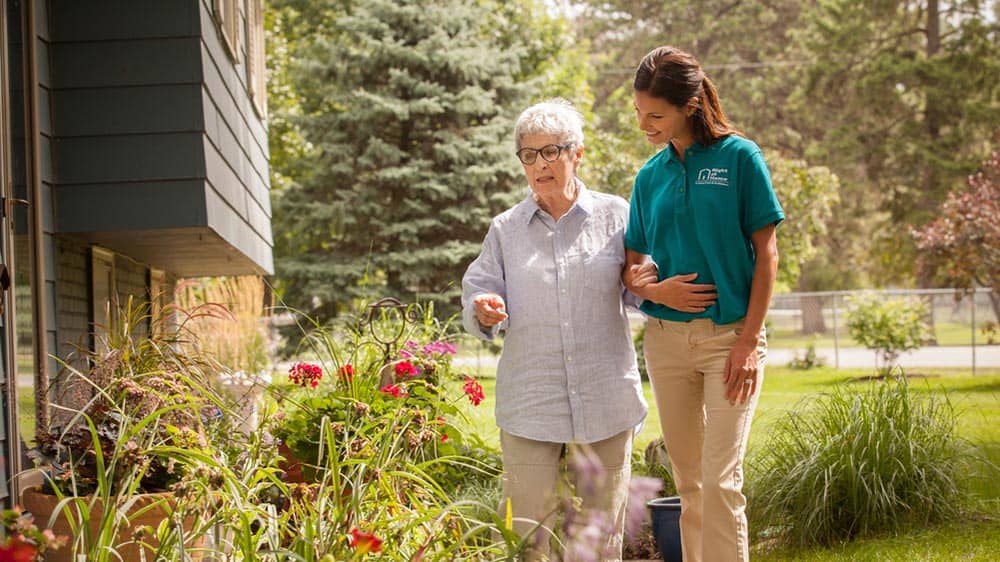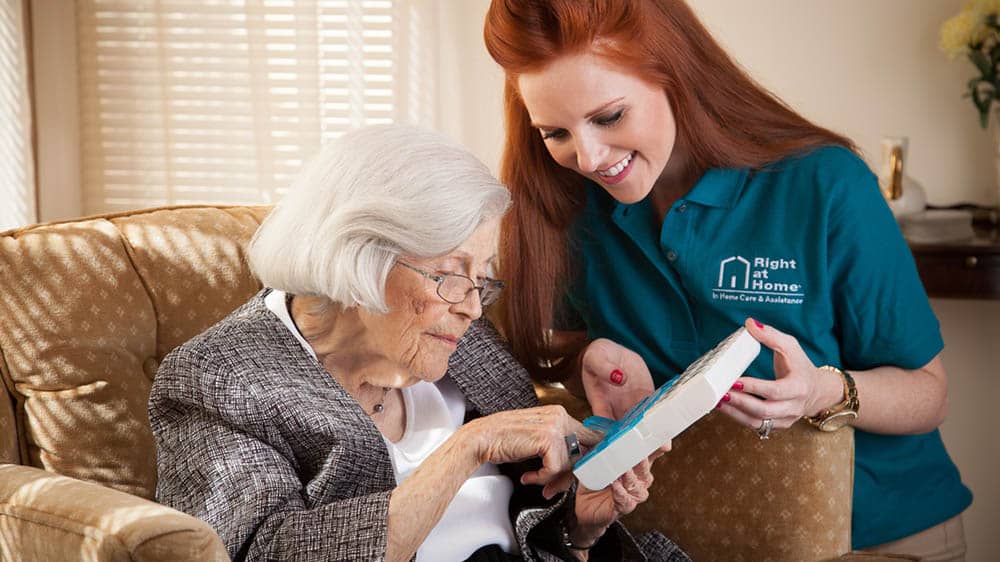

7 Answers to Frequently Asked Questions About Elderly Health Issues
If you’re an adult child or a family caregiver of an elderly loved one aging in place, you may have questions and worries about the future. You may wonder how you can ensure your loved one’s well-being and safety at home or how to handle certain subjects you need to discuss. Here are some of the top questions asked and useful information to help you navigate as you provide care for your older loved one.
- Is it safe for my aging loved one to continue driving? If you notice new dents or scratches on your loved one’s vehicle or if they’ve been in a recent accident in which they were at fault, it could be time to consider the possibility that it may no longer be safe for them and others if they continue driving. Although it may be a difficult conversation, it’s an important one. While aging doesn’t automatically mean your older loved one is no longer safe, a medical condition might be affecting their abilities. Certain medical conditions could cause slower reflexes, loss of hearing or vision, or cognition issues, and there could be side effects from certain medications as well.
According to Web MD, signs that there could be an issue include: - Forgetting to signal, use mirrors, or check blind spots.
- Getting lost in familiar areas.
- Inability to correctly judge distances.
- Failing to follow road signs.
- Minor accidents or hitting curbs frequently.
- Getting agitated easily.
- Difficulty with not getting distracted.
- Should I be worried about my parent’s cognition? Perhaps your parent seems more forgetful lately, or you’re seeing mood swings or confusion. What should you do if you are worried about Alzheimer’s disease, dementia, or cognition issues creeping in? In some cases, these signs could mean you should seek the advice of a medical professional. The most common signs of Alzheimer’s include depression, mood swings, delusions, forgetfulness, aggression, social withdrawal, changes in memory and personality, getting lost, and misplacing items. If you are concerned, go with your parent to their next doctor appointment and ask their provider. The doctor may be able to reassure you and your loved one or recommend a cognitive test that can help provide answers.
- What does it mean if my parent is no longer as clean as they used to be? Are you noticing a change in their personal cleanliness? Are they wearing dirty clothes, or do you suspect they haven’t bathed in a while? These are signs that they may need assistance. Basic hygiene can be challenging as we age for many reasons, including a fear of falling when getting in and out of the shower or tub. If you or your loved one are uncomfortable with you providing the help, you may want to seek assistance from a professional caregiver who is trained and experienced and can help provide the care and compassion needed in this situation.
- What do I do if I suspect my loved one is not taking their medications regularly or at all? You may suspect your parent is skipping doses on purpose, or perhaps they are just being forgetful. While we all occasionally forget a dose, doing so chronically could prove deadly. Ask your loved one which medicines they take, what each medicine treats, the dosage of each, and when they take each one. Document it via a medication log and have them mark it off each time they take a scheduled dose. If you notice irregularity or have more concerns, talk to your loved one about how you can help remind them to ensure their well-being. If all of that fails, accompany your loved one to their next doctor appointment and ask about it.
- My parent seems unsteady, and they’ve fallen a couple of times over the last year. Should I be concerned? Balance can begin to decline in midlife. Several causes include medications, inner ear problems, and other medical conditions. According to the National Institute on Aging, each year, one in four people over age 65 experiences a fall. If you notice bruises and other injuries, ask your loved one about them. It may also be something to bring up at their next medical appointment. You can also consider ways you can help make their home safer. Right at Home offers a free Fall Prevention Guide with specific steps to reduce fall risk around the home.
- Why is my dad always misplacing items? Perhaps you have noticed that your aging loved one frequently hunts for something they need and can’t remember where they placed it, like medication, glasses, an electronic device, or something else. Perhaps you’ve been recruited to help them look for something. Regardless, it may be helpful for you to volunteer to help them organize their kitchen and bathroom items to reduce clutter. When it comes to being organized, a good phrase to remember is “a place for everything and everything in its place.” This means that everything, even frequently used items, should be kept in a specific place and always put away when not in use. Help your loved one identify a convenient place to store their cellphone, remote controls, and keys for later use.
- Is it time for us to consider getting help for my aging loved one? How much would it cost? While most seniors want to age in place in their own homes, many will need help to do so. Family members can pitch in, but sometimes, a professional caregiver is the answer. If you and your loved one decide that in-home care is appropriate, how to pay for it is likely at the top of your list of questions. In most cases, Medicare, Medicaid, and supplemental insurance do not cover the cost of in-home care. To explore sources that may pay for care, download Right at Home’s free Ways To Pay for In-Home Senior Care Guide. This resource provides information on the options available to help pay for this important service.
Having keys taken away can feel like a loss of independence for a senior, so if it is time for a conversation about it, Right at Home can help with a free RightConversations Guide. This guide provides families helpful tips for handling conflicts and overcoming communication barriers.
How Right at Home Can Help
Right at Home offers a wide range of in-home care services across the U.S. and worldwide. Our insured/bonded caregivers can provide everything from homemaking and companion care to personal care and hygiene assistance. Some offices even offer some nursing services. Use our office locator to find your nearest location and schedule your free in-home assessment.
Would you like monthly tips, information, and advice about the aging journey delivered to your email inbox? Subscribe to our Caring Right at Home e-newsletter today.







